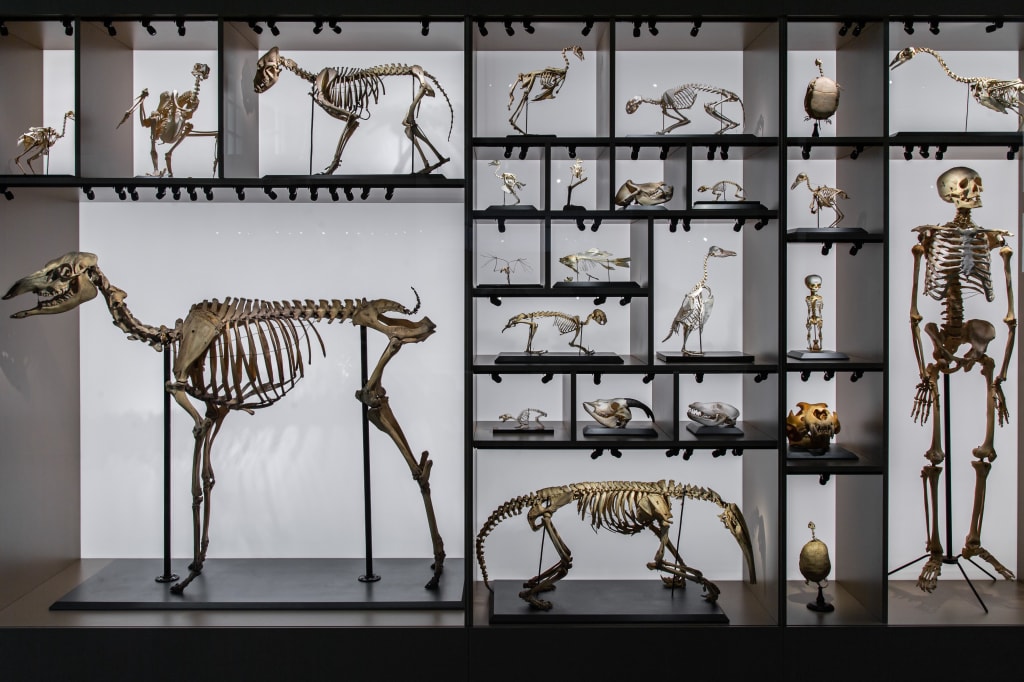
The story of human evolution is a complex and fascinating one, spanning millions of years and encompassing many different species and branches of the evolutionary tree.
The earliest known hominid species, Sahelanthropus tchadensis, lived in what is now Chad around 7 million years ago. Over time, other hominid species emerged, including Orrorin tugenensis, Ardipithecus ramidus, and Australopithecus afarensis, the latter of which is perhaps best known for the discovery of the famous fossil Lucy.
Around 2.5 million years ago, the first members of the genus Homo appeared, including Homo habilis, considered by many to be the first truly human species. Over time, other Homo species emerged, including Homo erectus, Homo heidelbergensis, and eventually Homo sapiens, the species to which modern humans belong.
Throughout this long evolutionary history, humans underwent a number of significant changes and adaptations, including the development of bipedalism, the expansion of brain size and cognitive abilities, and the emergence of complex societies and cultures. Today, Homo sapiens is the only surviving member of the Homo genus, and our species has spread across the globe and become the dominant force on Earth.
The evolution of Homo sapiens also included significant cultural and technological advances, such as the development of language, the use of tools and weapons, and the creation of art and symbolic expression. These cultural innovations allowed humans to adapt and thrive in a wide range of environments, from the icy tundra of the Arctic to the dense rainforests of the equator.
In more recent history, humans have continued to evolve in ways that are shaped by both biological and cultural factors. For example, the process of domesticating plants and animals led to changes in human diets and lifestyles, which in turn had an impact on the development of our bodies and brains. Additionally, the spread of agriculture and the rise of civilization brought about significant changes in human social organization and culture.
Today, humans continue to evolve, although the pace and direction of this process are somewhat uncertain. Some researchers argue that modern lifestyles, including changes in diet, exercise, and environmental factors, are leading to new patterns of human evolution. Others suggest that advances in technology, such as genetic engineering and artificial intelligence, may also play a role in shaping the future of human evolution.
Overall, the story of human evolution is one of remarkable adaptability and resilience. From our earliest ancestors to the present day, humans have faced numerous challenges and obstacles, yet we have always found ways to overcome them and thrive. As we look to the future, it remains to be seen what new evolutionary paths we may take, but one thing is certain: the story of human evolution is far from over.
As humans have evolved, we have also had a profound impact on the world around us. Our ability to alter the environment and harness natural resources has allowed us to build complex societies and civilizations, but it has also led to widespread environmental degradation and the loss of biodiversity.
In recent years, there has been a growing recognition of the urgent need to address the environmental challenges facing our planet. Many scientists and policymakers argue that we need to adopt more sustainable practices and reduce our impact on the natural world if we are to ensure a livable future for generations to come.
In addition to environmental concerns, humans also face numerous social and political challenges. Issues such as inequality, conflict, and human rights violations continue to affect millions of people around the world, and there is a growing awareness of the need for greater social justice and equality.
Despite these challenges, humans have demonstrated a remarkable capacity for innovation and problem-solving. Throughout history, we have developed new technologies, created new forms of social organization, and overcome seemingly insurmountable obstacles. As we look to the future, it is likely that we will continue to face new challenges and opportunities, and that we will need to draw on our collective ingenuity and creativity to navigate these changes.
About the Creator
Enjoyed the story? Support the Creator.
Subscribe for free to receive all their stories in your feed. You could also pledge your support or give them a one-off tip, letting them know you appreciate their work.






Comments
There are no comments for this story
Be the first to respond and start the conversation.